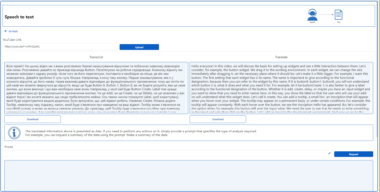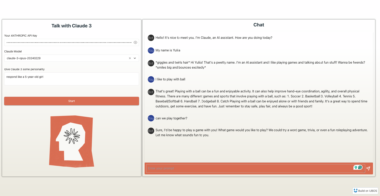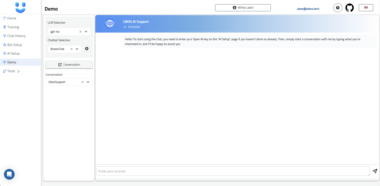Supabase MCP Server Implementation Plan
This document outlines the plan for creating a Model Context Protocol (MCP) server that connects to Supabase, allowing AI assistants like GitHub Copilot to interact with your Supabase database.
Table of Contents
- Overview
- Prerequisites
- Implementation Steps
- Server Architecture
- Configuration
- Security Considerations
- Installation Guide
- Usage Examples
- Troubleshooting
Overview
The Supabase MCP server will act as a bridge between AI assistants (like GitHub Copilot) and your Supabase database. This allows the AI to:
- Understand your database schema
- Know about tables and relationships
- Assist with query writing
- Provide context-aware suggestions related to your data model
Prerequisites
- Node.js 18+ installed
- npm or yarn package manager
- Supabase project with admin API key
- VS Code with Copilot/MCP support
- Git
Implementation Steps
1. Create Server Package
mkdir mcp-server-supabase
cd mcp-server-supabase
npm init -y
2. Install Dependencies
npm install @supabase/supabase-js @modelcontextprotocol/server dotenv
3. Basic Server Structure
Create these files:
src/index.js- Main entry pointsrc/supabase-client.js- Supabase connection handlingsrc/schema-provider.js- Database schema extractionsrc/query-handler.js- Safe query execution.env.example- Environment variable templateconfig.js- Configuration management
4. Server Implementation Details
src/index.js
This file will initialize the MCP server and connect the components:
const { MCPServer } = require('@modelcontextprotocol/server');
const { getSupabaseClient } = require('./supabase-client');
const { SchemaProvider } = require('./schema-provider');
const { QueryHandler } = require('./query-handler');
const config = require('./config');
async function main() {
try {
// Initialize Supabase client
const supabaseClient = getSupabaseClient(config.supabase.url, config.supabase.key);
// Create providers
const schemaProvider = new SchemaProvider(supabaseClient);
const queryHandler = new QueryHandler(supabaseClient, config.security.allowedQueries);
// Initialize MCP server
const server = new MCPServer({
name: 'mcp-server-supabase',
version: '1.0.0',
});
// Register handlers
server.registerHandler('getSchema', async () => {
return await schemaProvider.getFullSchema();
});
server.registerHandler('getTableInfo', async (params) => {
return await schemaProvider.getTableInfo(params.tableName);
});
server.registerHandler('executeQuery', async (params) => {
return await queryHandler.execute(params.query, params.params);
});
// Start the server
await server.start();
console.log('MCP Supabase server is running');
} catch (error) {
console.error('Failed to start MCP server:', error);
process.exit(1);
}
}
main();
src/supabase-client.js
const { createClient } = require('@supabase/supabase-js');
function getSupabaseClient(url, apiKey) {
if (!url || !apiKey) {
throw new Error('Supabase URL and API key must be provided');
}
return createClient(url, apiKey, {
auth: { persistSession: false },
});
}
module.exports = { getSupabaseClient };
src/schema-provider.js
class SchemaProvider {
constructor(supabaseClient) {
this.supabase = supabaseClient;
}
async getFullSchema() {
// Query Supabase for full database schema
const { data, error } = await this.supabase
.rpc('get_schema_information', {});
if (error) throw new Error(`Failed to get schema: ${error.message}`);
return data;
}
async getTableInfo(tableName) {
// Get detailed information about a specific table
const { data, error } = await this.supabase
.rpc('get_table_information', { table_name: tableName });
if (error) throw new Error(`Failed to get table info: ${error.message}`);
return data;
}
}
module.exports = { SchemaProvider };
src/query-handler.js
class QueryHandler {
constructor(supabaseClient, allowedQueryTypes = ['SELECT']) {
this.supabase = supabaseClient;
this.allowedQueryTypes = allowedQueryTypes;
}
validateQuery(queryString) {
// Basic SQL injection prevention and query type validation
const normalizedQuery = queryString.trim().toUpperCase();
// Check if the query starts with allowed query types
const isAllowed = this.allowedQueryTypes.some(
type => normalizedQuery.startsWith(type)
);
if (!isAllowed) {
throw new Error(`Query type not allowed. Allowed types: ${this.allowedQueryTypes.join(', ')}`);
}
return true;
}
async execute(queryString, params = {}) {
// Validate query before execution
this.validateQuery(queryString);
// Execute the query through Supabase
const { data, error } = await this.supabase
.rpc('execute_query', { query_string: queryString, query_params: params });
if (error) throw new Error(`Query execution failed: ${error.message}`);
return data;
}
}
module.exports = { QueryHandler };
config.js
require('dotenv').config();
module.exports = {
supabase: {
url: process.env.SUPABASE_URL,
key: process.env.SUPABASE_SERVICE_KEY,
},
server: {
port: process.env.PORT || 3000,
},
security: {
allowedQueries: process.env.ALLOWED_QUERY_TYPES
? process.env.ALLOWED_QUERY_TYPES.split(',')
: ['SELECT'],
}
};
.env.example
SUPABASE_URL=https://your-project-ref.supabase.co
SUPABASE_SERVICE_KEY=your-service-key
PORT=3000
ALLOWED_QUERY_TYPES=SELECT
5. Supabase Database Functions
You’ll need to create these stored procedures in Supabase:
get_schema_information()- Returns database schemaget_table_information(table_name TEXT)- Returns info about specific tableexecute_query(query_string TEXT, query_params JSONB)- Safely executes queries
Server Architecture
┌─────────────────────┐ ┌───────────────────┐
│ │ │ │
│ VS Code + Copilot │◄────►│ MCP Protocol │
│ │ │ │
└─────────────────────┘ └─────────┬─────────┘
│
▼
┌─────────────────────┐
│ │
│ Supabase MCP Server │
│ │
└─────────┬───────────┘
│
▼
┌─────────────────────┐
│ │
│ Supabase Database │
│ │
└─────────────────────┘
Configuration
Add the Supabase MCP server to your VS Code settings.json:
"mcp": {
"inputs": [],
"servers": {
// ...existing servers...
"mcp-server-supabase": {
"command": "node",
"args": [
"/path/to/mcp-server-supabase/src/index.js"
],
"env": {
"SUPABASE_URL": "https://your-project-ref.supabase.co",
"SUPABASE_SERVICE_KEY": "your-service-key",
"ALLOWED_QUERY_TYPES": "SELECT"
}
}
}
}
Security Considerations
API Key Management:
- Use a scoped API key with minimum required permissions
- Store API keys securely, never commit to version control
- Consider using a key rotation strategy
Query Restrictions:
- Default to SELECT-only for safety
- Consider implementing a query allowlist approach
- Add rate limiting to prevent abuse
Data Protection:
- Avoid exposing PII or sensitive data
- Implement row-level security in Supabase
- Consider adding data masking for sensitive fields
Installation Guide
Local Development
Clone the repository
git clone https://github.com/yourusername/mcp-server-supabase.git cd mcp-server-supabaseInstall dependencies
npm installCreate
.envfile from examplecp .env.example .envEdit
.envwith your Supabase credentialsStart the server
node src/index.js
VS Code Integration
- Update your VS Code
settings.jsonwith the server configuration - Restart VS Code
- Verify the server is running in the VS Code MCP panel
Usage Examples
Once integrated, you can use the Supabase MCP server in various ways:
Schema exploration:
What tables do I have in my Supabase database?Table information:
What columns are in the users table?Query assistance:
Help me write a query to get all users who signed up in the last 7 days
Troubleshooting
Server won’t start
- Check your Node.js version (should be 18+)
- Verify your Supabase credentials
- Check for error logs in the terminal
Schema not loading
- Verify your Supabase service key has necessary permissions
- Check that the database functions are properly created
VS Code can’t connect
- Check that the server path in settings.json is correct
- Restart VS Code after configuration changes
- Verify the server process is running
Supabase MCP Server
Project Details
- Sentry01/Supabase-MCP-for-Copilot
- Last Updated: 3/20/2025
Recomended MCP Servers
One Prompt for Your Agentic MCP Server, Powered by Thousands
Use Model Context Protocol with multiple Fireproof JSON document databases

MCP server to directly access AWS location services using the GeoPlaces API, provides direct geocoding or reverse-geocoding capabilities...

MCP Server for Harvest
An experimental ModelContextProtocol server connecting LLMs to DefectDojo for AI-powered security workflows. Enables natural language interaction with vulnerability...

SushiMCP is a dev tools MCP that serves context on a roll.
Browse the web, directly from Cursor etc.

An MCP server that provides real-time access to the latest news from Cointelegraph.
 From vibe coding to vibe deployment. UBOS MCP turns ideas into infra with one message.
From vibe coding to vibe deployment. UBOS MCP turns ideas into infra with one message.





